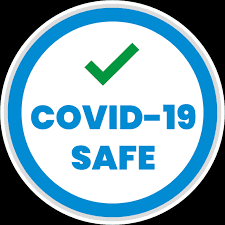ASK A DOC: What do I do about COVID-19?

By Thomas J. Ervin, M.D., Boca Grande Health Clinic
Being asked “What do I do about COVID?” is a complicated question for anyone in clinical medicine to answer. If the COVID-19 pandemic was an elephant (it is large), it’s description would depend on which part of the anatomy was being viewed or described. The pandemic experience, and the choices for the management of COVID-19 when it occurs, has created many issues, many challenges, and many questions for us all. Answering the question of “What do I do about COVID-19” is a moving target. As the Centers for Disease Control and Prevention (CDC) director has said, “When the virus (COVID-19) changes, the science changes.” Here is today’s attempt to reply to some aspects of the question.
Why are infections occurring in the vaccinated population?
Like influenza, various strains of COVID-19 have emerged. The virus remains unstable and mutations in the genetic code of the virus will continue. Mutations (at least 35 so far) have resulted in changes in the spike protein targeted by the vaccines to produce immunity. This mutational effect results in the production of less precise and less efficient immunity in the vaccinated. In addition, the strength and efficiency of the immune appears to wane with time after vaccination. The result is partial evasion of the immune umbrella by COVID-19. COVID-19 can still rain on the vaccinated, but fortunately the immune umbrella is effective enough to keep the infectious rain to a shower for most. The immunosuppressed and the frail or very elderly, however, may still become ill. It is still wise to behave in a way that will minimize infection, even with Omicron.
What are the most recent clinical guidelines for handling cover exposure or infection?
COVID-19 CLINICAL UPDATE 2022
Definition: Fully Vaccinated Status for persons 15 years old or older
- More than 6 months out from primary mRNA series (2 doses) and boostered.
- More than 2 months out from primary Janssen (J+J) series and boostered.
- Less than 6 months out from primary mRNA series or less than 2 months out from primary Janssen (J+J) primary series.
All other vaccine status is considered not fully vaccinated.
Definition: Isolation vs. Quarantine
- Isolation refers to behavior if the person is symptomatic with COVID-19 symptoms or after testing positive for COVID-19 infection. Isolation means stay at home, mask usage, do not go out into the community, avoid close personal contact if possible, and wash frequently.
- Quarantine refers to personal behavior after potential exposure to COVID-19. Quarantine can mean isolation, mask wearing, avoidance of close personal contact, and consideration of COVID-19 testing when appropriate.
If you are sick.
If you have symptoms, you must initially isolate until your COVID-19 test status is known. If the rapid test is NEGATIVE, continued isolation until the symptoms have resolved for 24 hours is requested. A second confirmatory negative test may be recommended prior to resuming normal activity.
If you are sick or asymptomatic and your rapid COVID-19 test is POSITIVE: You must isolate (see definition) until you are without symptoms for at least 24 hours. You are required to isolate for a minimum of 5 days even if your symptoms resolve earlier or you are asymptomatic. After 5 days, and when asymptomatic, mask usage is required for another 5 days when around others.
You should inform your close contacts (more than 10-15 minutes within 6 feet, face uncovered) of your positive test result. Close contacts encountered within 48 hours of your symptoms or positive test should be advised to follow quarantine behavior and consider rapid testing within 5 days from exposure.
Contact your doctor to inform them of your illness. Ask for clinical guidance should worsening symptoms occur or if you have existing illness which warrants special monitoring. Call your doctor if you experience high fever, breathlessness, chest pain, vomiting or inability to remain hydrated, or other concerns. If you continue to worsen, call 911, or have someone take you to a hospital emergency room.
Ask your doctor about the availability of early treatment for COVID-19. Both monoclonal antibody treatment and oral antiviral medicines are becoming available in some locations. Availability is now limited, but will soon expand. These treatment options will be updated as they become more available.
Repeat COVID-19 testing is not recommended at the end of your isolation/masking period. Repeat testing may be requested in certain high-risk transmission situations, or when immunosuppressed persons are involved. Also, unvaccinated infected persons clear the virus more slowly, and may be asked to retest before resuming normal behavior.
SUMMARY OF RECOMMENDATIONS FOR PERSONS WITHOUT SYMPTOMS, EXPOSED TO COVID-19, BUT NOT TESTED (Please see definitions)
If you are fully vaccinated and boostered (see definition):
- You do not need to isolate unless you develop symptoms
- It is recommended that you follow quarantine behavior specifically wearing mask protection for 10 days after COVID-19 exposure. Optional rapid testing 3-5 days after COVID-19 exposure is encouraged, even if you do not develop symptoms.
If you are NOT fully vaccinated (see definition):
- It is recommended that you quarantine at home (isolate) if possible for 5 days after COVID-19 exposure. Mask use and quarantine behavior is then to be continued for an additional 5 days after the initial isolation (if possible) period. COVID-19 rapid testing is suggested at 5 days following the COVID-19 exposure date.
A FEW MORE QUESTIONS
Do I need to get a booster shot?
Yes, you do! Regardless of your age (16 and older currently), booster administration is effective in avoiding severe COVID-19 infection. The interval between primary vaccination series and booster administration may change and the booster recommendations for children will expand. If there is a question about booster eligibility, please call the BGHC for advice. Booster vaccinations will continue to be offered.
What outpatient treatments are available for treating COVID-19?
Aside from good supportive care, there are currently, two forms of approved treatments for COVID-19. Monoclonal antibodies may be given by intravenous outpatient infusion or by subcutaneous outpatient infusion at community infusion centers, or regional hospital infusion clinics. Both treatments significantly reduce the need for subsequent hospitalization and reduce the duration and severity of the COVID-19 infection. Availability of the antibody may vary by site and supplies. The BGHC staff continually monitors the availability and can assist in referral for antibody treatment if appropriate. Patients with infection or exposure at risk may also contact the infusion centers or clinics on their own.
- Tringali Community Center, Englewood: 850-344-9637
- Sarasota Memorial Hospital Infusion Clinic: 941-262-0135
Oral antiviral treatments have recently been approved for emergency use. Both Paxlovid (Pfizer), and Molnupiriivir (Merck), have been approved for certain conditions. These oral medications are not yet available in most pharmacies. They require a prescription, and the medicine must be initiated within 5 days of testing positive or becoming ill with COVID-19 symptoms, or for known exposure without a positive test in high-risk patients (Molnupirivir). Use of the oral antiviral medications will become more frequent as the medicines become available. The Clinic will continue monitor the availability of these at home medications and the indications for their usage.
And finally, when will the pandemic end?
No one has the answer to this question, although it makes for great podcasts. The pandemic will end when we can all turn off the dashboards and resume a semblance of normal social life together. Until then, continue to listen to the science as it evolves, be kind to each other, and, stay well.
Do you have a question for us? If so, please send questions to the Boca Grande Health Clinic at https://www.bghc.org/contact or to the Boca Beacon and we will answer them monthly.









